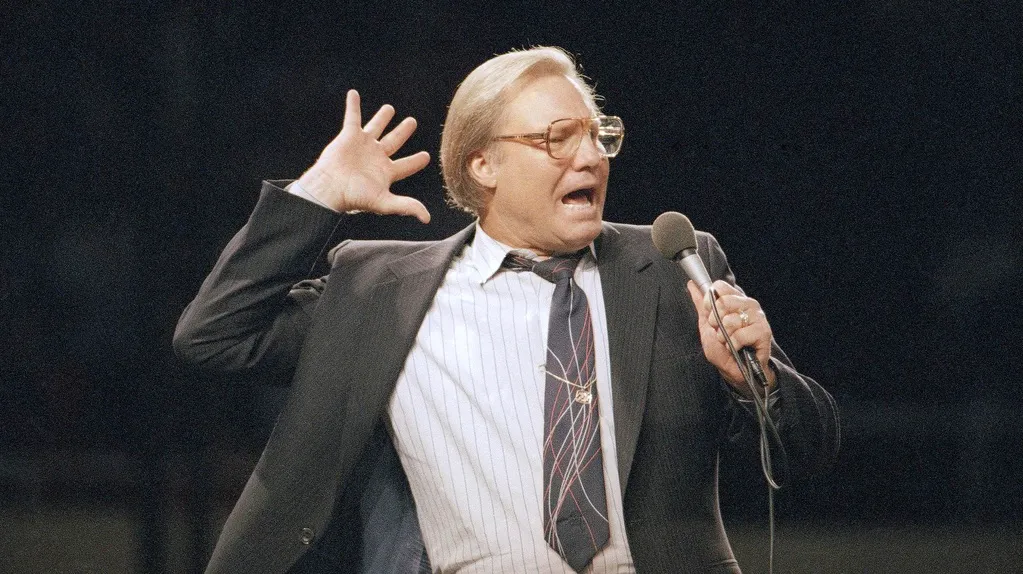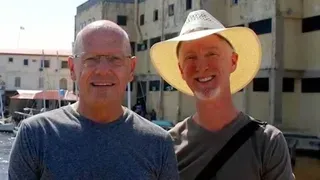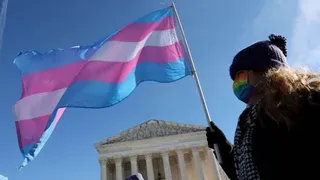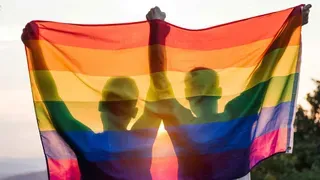September 7, 2007
Back to school :: Gay parents face unique challenges
Frances Betlyon READ TIME: 11 MIN.
School clothes, school supplies, student orientation, carpool schedules. The lengthy to-do list for parents before they can load their budding scholars onto the school bus is enough to make any parent pine for a return to the days of summer camp and sleepovers at grandma's house. LGBT parents often have additional and more amorphous tasks like ensuring a school will provide a safe and inclusive environment in which their children are treated respectfully and fairly. We asked Family Pride Coalition Executive Director Jen Chrisler, who, along with her spouse, former state senator Cheryl Jacques, will be enrolling her twin boys in a Newton school this month, for some advice to help parents make sure their child's school makes the grade.
What are the major issues children of LGBT parents confront in schools these days?
Well, I think the two biggest things that our children face, first is a sin of omission. In most elementary, middle and high schools across the country our families are rarely discussed, they're almost never incorporated into the curriculum and there are very few books that are available to students in their classrooms and in their school libraries. So nine times out of 10 what our children have to deal with more than anything else is just not being included in any way, shape or form in the overall school culture or curriculum or conversation. And I think that's especially hard for children of LGBT parents because it doesn't allow them any opportunity to integrate what they're learning into their own sets of experiences with their families, with their community.
The second, obviously, is that they're not immune to the harassment and bullying that happens in schools. When taunts like "faggot" and "homo" and "sissy" are thrown around, those impact our children just as severely as if they themselves identified as [lesbian, gay, bisexual or transgender]. And some of our children do identify as LGB or T, so they have the double burden that they're wearing in their school environment. And I think the third thing that's hard for our children is that at the end of the day, they have to do a lot of explaining about who their family is because they're still living in a world that doesn't talk regularly about LGBT people as parents. So even though people may mean nothing by it, even though the questions may be completely innocent, they still have to do a lot of explaining and that is a burden that no child should really have to deal with in a school environment. They should be able to focus on what's important in school - which is learning, forming peer relationships, using that time to try out different extracurricular activities - and having that added burden of having to constantly explain your family is really a drag.
What can LGBT parents do to help their children in these situations?
Obviously, I wish I had some silver bullet that would solve all of those problems. But I can tell you that what our parents have found is that being active and engaged in their children's school communities, trying to pave the ground for them by having conversations with teachers and administrators and other parents really can help cut down on the amount of explaining that they have to do, the lack of inclusion in the curriculum and the level of harassment and bullying that may take place in the school environment.
What can LGBT parents do to help schools prevent the discussion of their families from rising to the level it did in Lexington, where parents sued over the use of books that depicted gay families?
I think there's some basic things that parents need to go in armed with. First, they need to know what their state laws and their local ordinances say about how curriculum material gets included in their schools, what their harassment policies are, what the anti-discrimination policies are in a particular state or in a particular community, because that will arm you with the facts when situations like that arise. I think the best strategy is to be as proactive as possible, so to try and have these conversations before it becomes a crisis is really, really important and ... of all the pieces of advice that we give to parents, that is the single thing that I think is the most important, that you need to be proactive.
You need to schedule meetings, you need to have conversations, you need to educate early, you need to enlist the support of other parents and faculty and administrators in this conversation so that when you get to the point that you can include books and materials and diversity book bags or lessons in classrooms, [showing] films like That's a Family ... you've done the work. It will help make sure you have support in place should a single set of parents or a small minority of parents decide to make it an issue.
Many LGBT people talk of pressuring themselves to be "the perfect parent" in order to compensate for their nontraditional family structure. How can LGBT parents avoid that pressure, which is probably heightened when their children enroll in school?
I think some of it is about being confident in your own parenting skills and who you are as a person and having come to terms with being an LGBT parent. It sounds sort of oversimplified but at some core level it's true. The reality is that LGBT parents don't have to be perfect but they do have to be active and they have to be engaged in a way that straight parents don't have to be necessarily for their children.
I often liken it to parents who have children with special needs or parents who have children with peanut allergies or ... I know some folks who have severely diabetic children and they've had to be real advocates in the school for making sure that the school environment is supportive of their children's needs in order that they can learn best. And I don't think we have any less a burden than those groups of parents who have other challenges that their children may be facing. So it's not about being perfect. It's about being engaged and being proactive and being involved. And yes, is there a higher level of involvement for us? I think there is. And is that necessarily fair? No. But is it necessary? I think so.
Do you foresee the added burdens on LGBT parents and their children ending anytime in the near future?
I sure dream about a day where our kids don't have that added burden and where we as parents can be just like everybody else. And I think in some school environments and in some communities across this country we've definitely seen marked improvement. Certainly in the Bay Area, for example, there's a very robust program to help schools with diversity particularly as it relates to LGBT parents. There's some great work going on in Newton now - parent activists started this welcoming schools resource that they're now working with HRC to pilot all across the country.
So do I think change is happening? Without a doubt. Do I think that at the end of the day - this is certainly where Family Pride focuses its energy - do I think parents are still going to be the key to success in schools? Without a doubt. We are going to be our children's single best advocates. We have a natural reason to be involved with schools when our children are in them and we have our own sets of personal experiences that can really inform and guide policy makers and administrators and teachers when they're thinking about how to address these issues. So I'm not sure there will ever be a day where I don't think LGBT parents should not be involved ... in their kids' educational process, but I hope there comes a day where it's part of the rich fabric of parents making a school community worthwhile for children, as opposed to a necessity to protect their kids.
Does Family Pride Coalition have any resources to help LGBT parents navigate their children's educational environment?
There are three publications that we have, Opening Doors, Opening More Doors and the Back to School Tool, which are all publications that we've authored that give really concrete ideas for how to engage your schools in a conversation about how to make them a welcoming place for children of LGBT parents. Our newest tool, which is an online resource, is the Rainbow Report Card, and parents and teachers and straight allies and whoever wants to can go there and answer nine questions ... and how you answer those questions will then generate a custom set of responses and recommendations for you to take back to that individual school and say, "Okay, based on what I know [and what I] don't know is happening in the school, here are some things we need to address and tackle and here's some ways that we can do that." We've had over 320 folks fill it out.
Family Pride Coalition is a national organization that is now headquartered in Massachusetts. How does the state measure up regarding protections and inclusion for LGBT families in schools?
Massachusetts is definitely ahead of the curve in terms of protections it provides at the school level and we have a statewide anti-discrimination [law]. We have a law that protects LGBT students in their schools and we have robust gay/straight alliances. We have the [Mass. Commission on GLBT Youth]. While under the ravages of a Republican administration funding for those kinds of programs has decreased, still, this state has a long history of being concerned about and looking for positive ways to impact school cultures and communities. [The Gay, Lesbian, Straight Educators' Network] has a strong presence obviously here in Boston and in Massachusetts.
Add to that that we have actually a court case around issues of including books and diverse materials in elementary school curriculums that obviously is in favor of LGBT parents and their children being able to include that material, and I think we're very far ahead of the curve from that perspective. I think though, that even in Massachusetts still the number of schools across the 350-plus cities and towns that are in Massachusetts, my guess is there's only a handful of schools where you've got more than one or two families with LGBT parents. The bulk of them are in the Boston-Metrowest suburban enclaves where gay and lesbian parents are raising their kids. We, for example, are sending our kids to a school in Newton. We're one of several same-sex couples that have children going to that elementary school, but in the large majority of schools all across this state there are still either no kids with LGBT parents or one family who are sort of going through it all by themselves, trying to forge a path that makes sense to them and protect their kids in the process.
You know we have a long way to go in this conversation still even in Massachusetts. And while marriage is an incredible benefit that we have here ... it doesn't negate the fact that kids are still being teased and tormented either for being gay or having gay parents. And we need to continue to find ways to combat that because children can't learn when they're being taunted and tormented.
Recipe for a successful school year? Listen to your kids.
For most kids, going back to school brings up all kinds of anxieties about teachers, cliques, bullies, homework and any number of other sources of childhood and adolescent angst. For those with LGBT parents, there's an added wrinkle: Grappling with whether or not to disclose that you have two moms, two dads or some other family structure that deviates from the norm. Beth Teper, executive director of Children of Lesbians and Gays Everywhere (COLAGE), said that the children of LGBT parents have to make many of the same decisions that their parents make about coming out.
"Coming out is a lifelong process, and that's true, too, for children with lesbian, gay, bisexual and transgender parents," said Teper.
Yet while most LGBT people negotiate the hazards of coming out as adults or teenagers, their children have to start that process much sooner, and Teper said almost as soon as they develop basic language skills they learn that their families differ from those of most of their peers.
"Really what I have learned and heard even anecdotally ... is pretty much as early as children are even two, two-and-a-half years old, they are negotiating, are determining if it's safe to come out or not," said Teper.
When Teper talks about safety, she means it. She said one of the consequences of being honest about their families is that the children of LGBT parents can become the target of bullies. Teper explained that while bullying can occur at any grade level, it can get particularly bad during the middle school years, a difficult time for many young people regardless of their background.
"Middle school is one of the hardest times. High school is also still difficult, but in high school young people are starting to assert their identity more," said Teper.
Parents, teachers and peers can take steps to make the children of LGBT parents feel more comfortable coming out about their families. For parents and teachers, working to make sure that there are books and classroom materials about LGBT families available in the school can help send the message that the school is LGBT-friendly. In the younger grades many schools have curricula focusing on families, and making sure that lessons are LGBT-inclusive can help shore up the confidence of children that their family will be accepted.
For students, starting or participating in a gay/straight alliance (GSA) can help promote the message that children of LGBT parents will find support among their peers.
At the end of the day, Teper said the decision about whether or not to come out about their families should rest with each individual young person, not their parents, and sometimes a child might decide to stay in the closet. A child might ask his or her parents not to come to school functions, or to only have one attend so that the rest of the school community does not know the child's parents are a same-sex couple. Teper said if a child tells their parents that he or she does not want to be open about their family, the last thing they should do is panic or take it as an indictment of their parenting skills.
"The first thing I would say is if the young person is even having this discussion, that's something the parents should be proud of," said Teper.
She said parents in this situation should talk with their child. Key questions to ask are, what are they experiencing in school that prompted their decision, what kinds of language are they hearing peers and teachers at school use to talk about LGBT people, and what consequences do they think they will face if they decide to be open about their family. In some cases they may find that they can alleviate their child's fears. Teper said some children may believe that talking about their family at school could put their parents in danger by leaving them open to violence or by causing them to be fired from their job. Young people may believe that they are protecting their family by keeping silent.
"Oftentimes young people are carrying the burden and their parents don't even recognize it," said Teper.
She said parents should also ask their children if there is anything they can do to make it easier for their children to talk about their families. One resource she pointed to is the COLAGE website, (colage.org), which contains information about posters, videos and other materials designed by the children of LGBT parents to make their school more welcoming. For parents who are looking for resources, COLAGE's documentary In My Shoes, chronicling the experiences of the children of LGBT parents, will be screening in Boston Sept. 30.
When all is said and done, Teper said the child may decide that it makes more sense for them not to disclose that they have LGBT parents in schools, and Teper said parents should respect that decision. But she said young people's comfort levels change over time, and parents should try to negotiate with their children about what makes them feel comfortable in new situations. The child may not want both parents to attend the first parent-teacher conference, but parents should ask their children if they feel the same way before the next conference.
"One conversation isn't a final conversation," said Teper.







